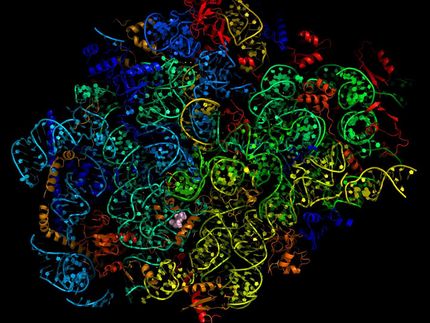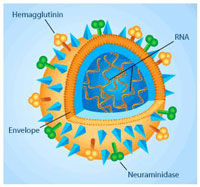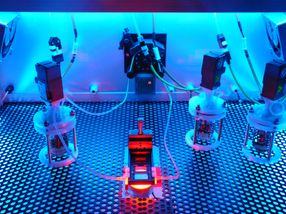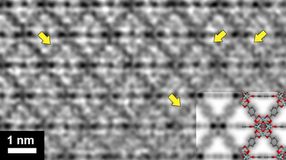$43 million grant from Gates Foundation brings together unique collaboration for antimalarial drug
Effort could significantly reduce cost, boost aupplies of artemisinin
A $42.6 million grant from the Bill & Melinda Gates Foundation to the Institute for OneWorld Health, the first nonprofit pharmaceutical company in the United States, will create a powerful new approach to developing a more affordable, accessible cure for malaria, which kills more than a million children each year.
OneWorld Health, which announced the grant today (Monday, Dec. 13), will work in partnership with the University of California, Berkeley, and Amyris Biotechnologies. UC Berkeley will conduct research to perfect a microbial factory for the compound artemisinin, currently the most effective treatment for malaria, and Amyris, a new biotech company founded on the breakthroughs in synthetic biology pioneered at UC Berkeley, will develop the process for industrial fermentation and commercialization. OneWorld Health will perform the drug development and regulatory work to demonstrate the bioequivalence of microbially-produced artemisinin derivative to the drug's natural form.
Malaria has become increasingly resistant to front-line medications, but combination drugs containing artemisinin show nearly 100 percent effectiveness after a short three-day regimen. Yet, at a price of $2.40 per adult course for artemisinin combination therapies provided through the World Health Organization, these drugs are still beyond the reach of millions of the world's poorest people. Artemisinin is in short supply, and producing it currently is labor-intensive and relatively expensive.
The partnership will utilize a high-technology solution to bring down the cost of treatment to well under a dollar, a price more affordable for patients in developing countries.
"This is an extraordinary partnership between public and private institutions that combines cutting-edge science with a commitment to affordability and accessibility for those people in need," said Regina Rabinovich, M.D., M.P.H., director of infectious diseases at the Bill & Melinda Gates Foundation. "I hope that UC Berkeley's participation will serve as a model for other academic institutions to apply their scientific knowledge and resources to critical global health problems."
Each year, between 300 and 500 million people, most of them poor, become infected with malaria, and at least 1.5 million die, primarily children in Africa and Asia.
"With UC Berkeley's innovative technology, Amyris' advancement of this new process, and our drug development and regulatory expertise, we'll provide a new, scalable and stable supply of affordable antimalarials for the developing world," said Victoria Hale, Ph.D., founder and CEO of OneWorld Health.
To ensure affordability, UC Berkeley has issued a royalty-free license to both OneWorld Health and Amyris, of Albany, Calif., to develop the technology for malaria treatments. In exchange, Amyris will produce the drugs at cost, and OneWorld Health will perform the detailed non-clinical regulatory work that will be required by United States and other global agencies to allow the low-cost, microbially-based product to be substituted for plant-based product by manufacturers of combination drugs containing artemisinin.
The nonprofit nature of this partnership could be a model for attacking neglected diseases in the developing world, said Jay Keasling, Ph.D., professor of chemical engineering at UC Berkeley, who created the genetically engineered microbial drug factories. Keasling also is director of the synthetic biology department at Lawrence Berkeley National Laboratory and a California Institute for Quantitative Biomedical Research (QB3) faculty affiliate.
"This project will use some of the latest advances in molecular biology to engineer a microbial chemical factory and reduce the cost of a much-needed drug tenfold," he said. "In many ways, this project is a dream project: interesting science, high technology, rapid transition from the bench to the bedside, and most important, critical need."
To produce the artemisinin, Keasling and his team have genetically modified microbes. This approach, one of the first triumphs of a field called synthetic biology, also produces a reliably pure compound. While synthetic biology can be used to create any number of useful chemicals called isoprenoids that form the basis for products such as perfumes and flavorings, Keasling has chosen to focus on the creation of much-needed pharmaceuticals, such as artemisinin, for the developing world.
Extraction of artemisinin from the wormwood plant is labor intensive and, in some developing countries, it is produced by a diesel fuel purification process that may retain toxic impurities in the final drug product. UC Berkeley will complete development of the synthetic process and maximize production of artemisinic acid, a precursor to artemisinin. The breakthrough technology that makes all this possible was developed by Keasling and his UC Berkeley team over the past 10 years.
Amyris will develop processes to produce large quantities of microbial artemisinic acid and chemically convert it to artemisinin and other effective medicines. These new processes can be easily scaled to meet the enormous demand for low-cost pharmaceuticals in developing countries.
"We're focusing our groundbreaking technology on producing a known pharmaceutical - the most effective antimalarial out there - so that it reaches the people who need it most. This is just the beginning of drug production using synthetic biology," said Jack D. Newman, Ph.D., a founding scientist at Amyris.
























































